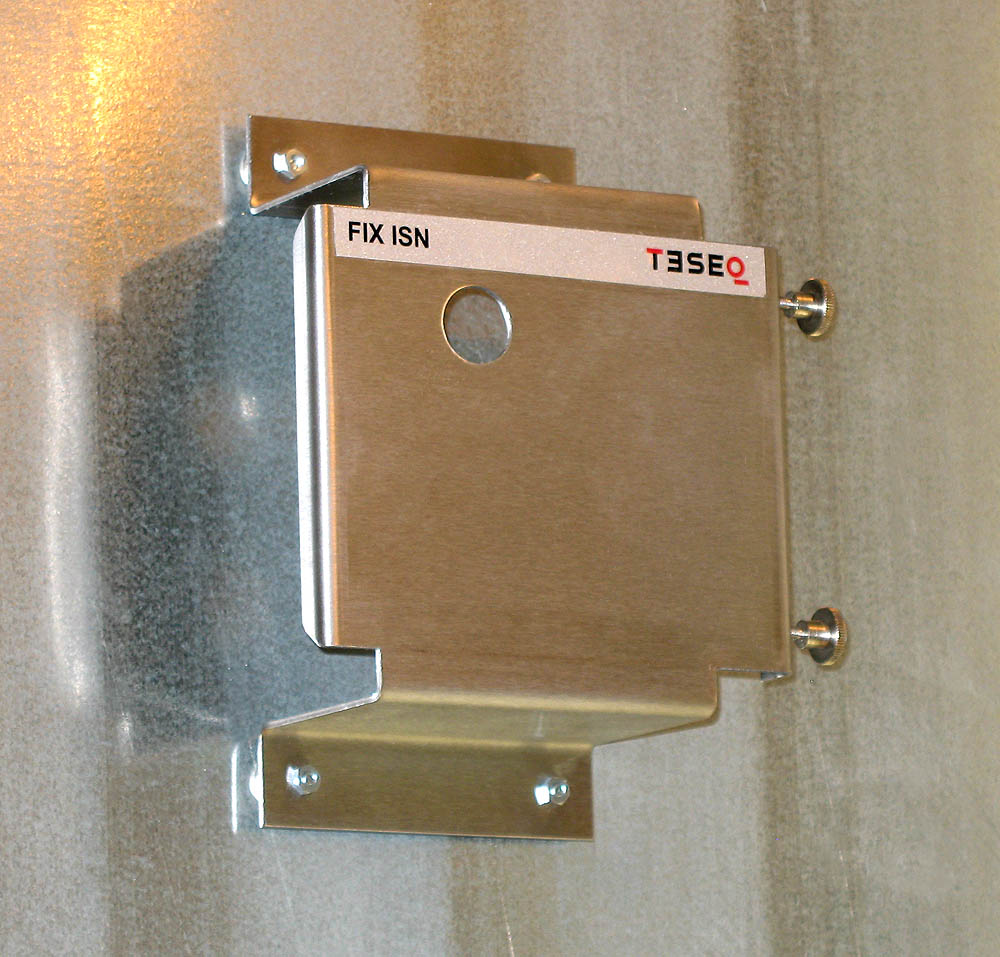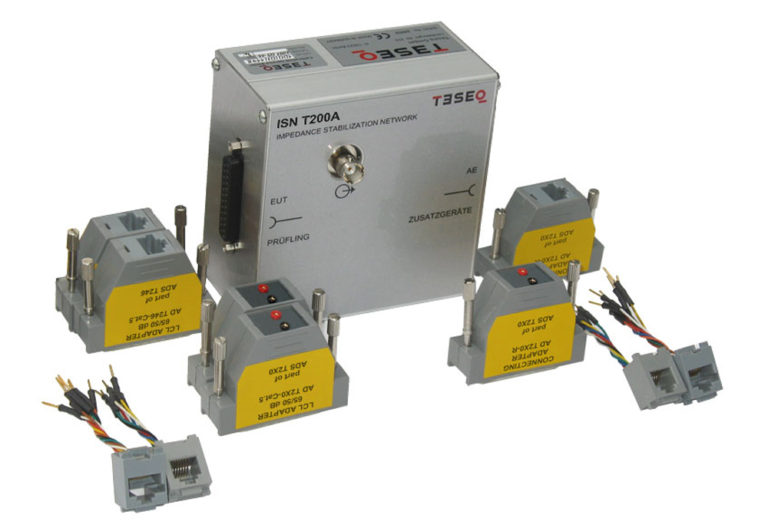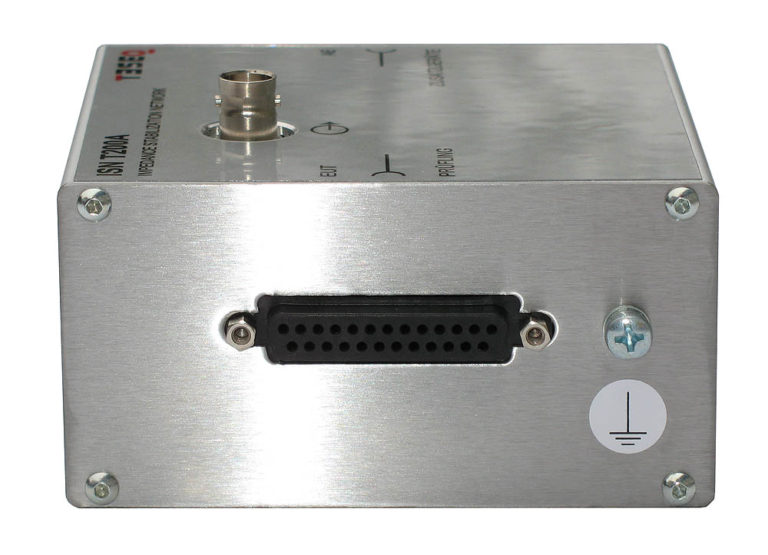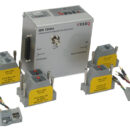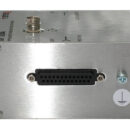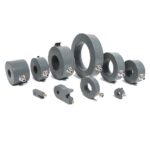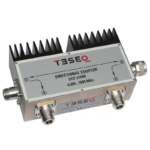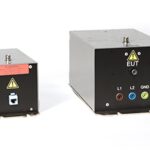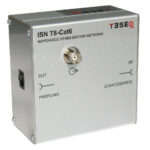Impedance stabilization networks (ISN, or with CISPR 16-1-2 called AAN: asymmetric artificial network) are defined for measuring of conducted common mode disturbances at information technology equipment (ITE) as required in CISPR 22 and CISPR 32. The ISN is placed between the equipment under test (EUT) and auxiliary equipment (AE) or load which are necessary for the operation of the EUT. The ISN establishes the common-mode termination impedance for the EUT’s telecommunications port during measurement and emulates the unsymmetrical contribution (longitudinal conversion loss, LCL) of the connected line. Different ISNs are available in relation to the line category, line numbers and pin-arrangement.
The ISN T2A is designed for measurements on one unscreened balanced pair and consists of one basic network (ISN T200A) with D sub 25 connectors and special adapter sets. A set of adapters consists of LCL adapters to realize the longitudinal conversion loss (LCL)- requirements for the EUT-side in relation to the used cable category (cat. 3, cat. 5) and a connection adapter for the AE-side.
| Parameter |
Value |
| Frequency range |
150 kHz to 80 MHz |
| Line parameters |
1 pair |
| Power rating (EUT- and AE Port) |
AC max. voltage (line to ground): 63 V
DC max. voltage (line to ground): 100 V
Current max: 600 mA
Test voltage: 200 VDC, 2 s |
| Common mode impedance (EUT Port) |
150 kHz to 30 MHz: 150 Ω ±20 Ω
30 MHz to 80 MHz: 150 Ω ±40 Ω |
CAS ISN
Calibration Kit for ISN T
- Meets CISPR 22 ed. 5.2 and CISPR 16-1-2
- Optional extensible for measurements on ISN T2 and ISN T8-Cat6
- Measurements for common mode impedance, phase angle, voltage division factor, decoupling attenuation (isolation) and longitudinal conversion loss (LCL)
The calibration kit CAS ISN is made for function tests and remeasurements on impedance stabilization network (ISN) for unshielded balanced pairs. Measuring parameters are common mode (CM) impedance, phase angle, voltage division factor, decoupling attenuation (isolation) and longitudinal conversion loss (LCL). Impedance stabilization networks (ISN) are defined in CISPR 22 and CISPR 16-1-2. The CISPR 16-1-2 gives additional requirements and provides examples and measurements for the networks. The ITU-T recommendations G.117 and O.9 offers the background knowledge for measurements on symmetrical telecommunication lines.
| Parameter |
Value |
| Frequency range |
100 kHz to 100 MHz |
| Impedance for the network analyzer ports |
50 Ω |
| Connector |
BNC-type female |
| Impedance for the balanced port |
100 Ω |
| Connectors for the balanced ports and ground |
1 mm banana |
CAS ISN Datasheet

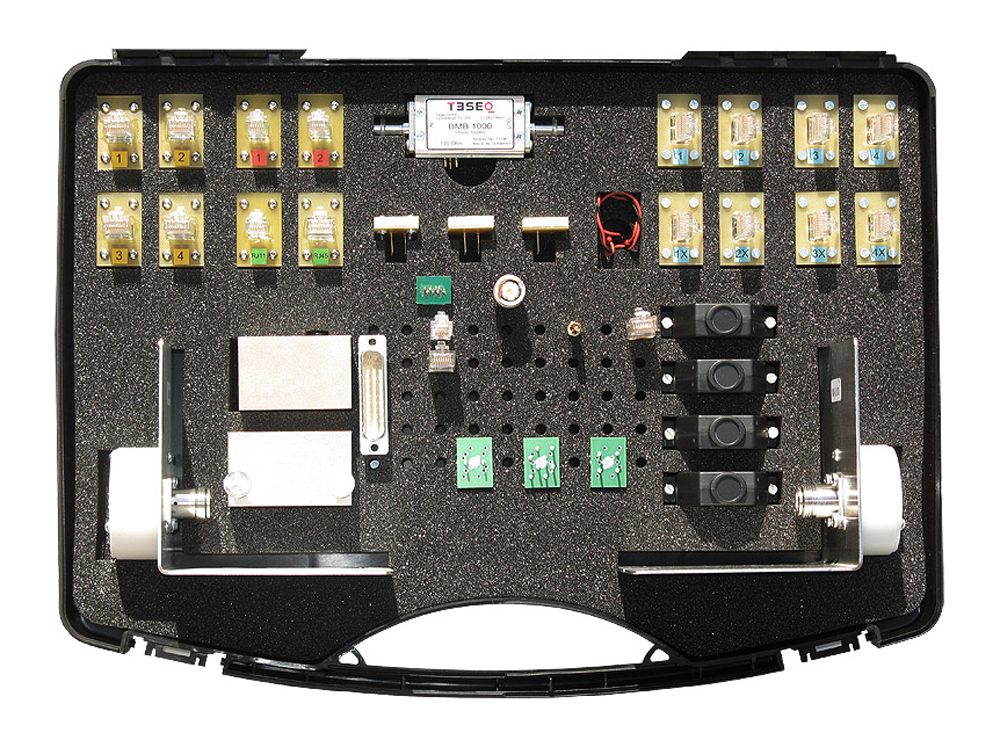
FIX ISN
Magnetic fixture for ISN T2A, ISN T4A, ISN T8, ISN T8-Cat6 or CDN T8
- Improvement of the ISN earth connection to steel surfaces
- Allows vertical positioning of the ISN (chamber wall)
- Easy positioning of the ISN in the setup
- Ruggedly designed
The magnetic fixture for ISNs (Impedance Stabilization Network) improves the earth connection to steel surfaces as typical used for Faraday cages. Its design provides a constant and stable pressure of the ISN enclosure against the ground plane. The standard CISPR 22/EN 55022 allows to place the ISNs also to a vertical ground plane which can be done easily with the use of FIX ISN.
| Parameter |
Value |
|
Fixture for product range
|
ISN T2A series, ISN T4A series,
ISN T8, ISN T8-Cat6, CDN T8
|
|
Dimension (L x W x H)
|
125 mm x 150 mm x 55 mm
|
|
Weight
|
approx. 300 g
|
FIX ISN Datasheet

